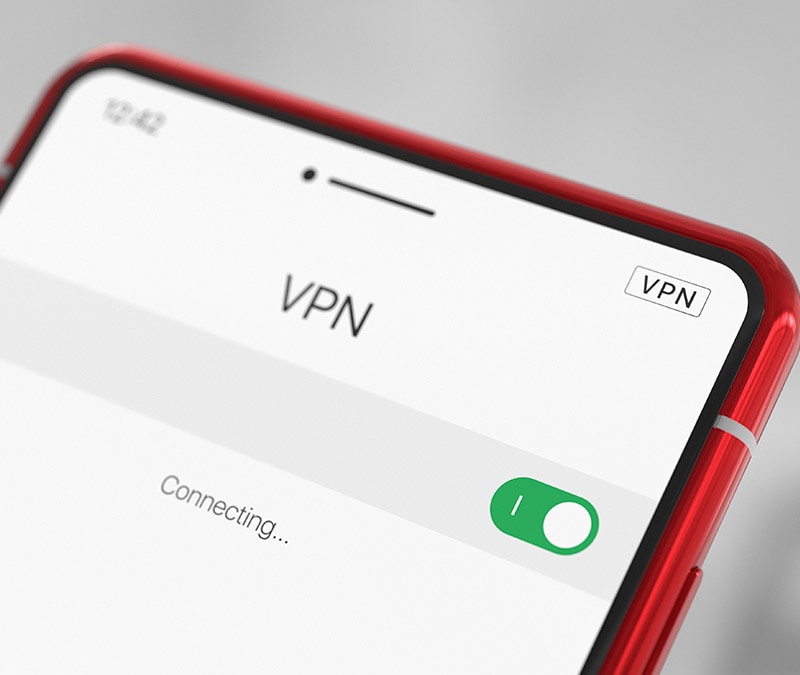Are the benefits of a VPN worth getting it?
If you're deciding whether you should get a VPN, you'll want to take a look at the benefits first.

It’s the era of digital privacy, so it’s no wonder that so many people are interested in getting VPNs.
With companies like Google and Facebook in the news for what they do with users’ data, as well as cybercriminals making waves for how they steal it from unsuspecting victims, it’s easy to see why nearly one out of every four internet browsers has used a VPN in the last month, according to GlobalWebIndex.
VPNs have become a major part of everyday life. They help users protect their online privacy, as well as watch their favourite television show.
But are the benefits of a VPN worth paying for one?
Let’s walk through exactly what you get with a VPN and why that benefit or feature is so valuable.
Help protect information sent over Wi-Fi
There’s rarely a place that people go to without asking for the Wi-Fi password. Free internet has become a common courtesy in cafes, restaurants and shopping centres. It allows customers to handle their online banking over a cup of coffee, or show Instagram how delicious their meal is.
But that public Wi-Fi isn’t as safe as you might think. Those activities may leave your information exposed and make you more vulnerable to cybercrime. If the Wi-Fi channel is compromised, cybercriminals can either ‘listen in’ and track what you do, or feed your browser with malicious web pages that can steal your information.
VPNs help users protect this information by creating an anonymous IP address for them, as well as encrypting what they do on the internet. If keeping your personal and financial information secure and browsing the web without having to look over your shoulder is valuable to you, then this is one of the most important benefits that explain why a VPN is worth getting.
Bank-grade encryption for web traffic
Part of the reason that VPNs create a securer web browsing experience is because they encrypt your web traffic. At least, they’re supposed to.
There are a few VPNs that use bank-grade encryption, like Norton VPN included in Norton 360. It provides the reassurance of bank-grade encryption when connecting to public Wi-Fi to help keep your information secure.
This means that even if a cybercriminal manages to intercept your online banking details or shopping information, they won’t be able to see what’s been done or typed. Banks use the same technology to ensure that cybercriminals can’t steal your money, and it helps average users ensure what they’re doing in private stays in private.

Get around geo-blocking
Cord cutters are moving to streaming websites like Netflix, Hulu or Disney+ in waves. But even though your favourite television show might be on your friend’s Netflix account in the United States, it might not be available to you in the UK.
This is called geo-blocking, which is really just a fancy word for restricting access to content (like television shows, websites or games) based on where someone lives. It’s usually done for legal purposes, because either the company that installed it doesn’t have the rights to operate in another country or the government doesn’t allow that piece of content to be viewed in the country.
A VPN gives you an anonymous IP address. It allows users to spoof the location of where they are so that they can watch their international television or access websites wherever they are.
Browse the web anonymously
Companies like Google and Facebook are free for a reason: you’re the product. These social media giants and thousands of other websites across the world use cookies to track where people go, what they search for and what they like.
The information is then used to target web advertisements to users with shared common interests. So, if you search for a new lawn mower, you may see an ad on Facebook for a lawn mower that’s on sale.
Despite it being a sneaky way to get deals on purchases (especially on Amazon), many also see it as an invasion of privacy. People use VPNs to make sure that those cookies don’t attach to their real digital identity – leaving them free to browse the web privately and without the annoyance of someone profiting off their data.
Gain access to customer support
Last but not least, when you purchase a VPN like Norton VPN included in Norton 360, you also get access to world-class Member Services and Support. In this case, from Norton – your ally in the fight against cyberthreats.
Navigating the minefield of cyberthreats on your own can be difficult. When your VPN or other cybersecurity tool doesn’t work, frustration can settle in and you can begin to revert back to your old ways.
With ongoing support from NortonLifeLock Member Services & Support agents, Norton 360 users are able to handle what the digital world throws at them. Learn what you’re missing out on today.
Editorial note: Our articles provide educational information for you. Our offerings may not cover or protect against every type of crime, fraud, or threat we write about. Our goal is to increase awareness about Cyber Safety. Please review complete Terms during enrollment or setup. Remember that no one can prevent all identity theft or cybercrime, and that LifeLock does not monitor all transactions at all businesses. The Norton and LifeLock brands are part of Gen Digital Inc.





Want more?
Follow us for all the latest news, tips, and updates.